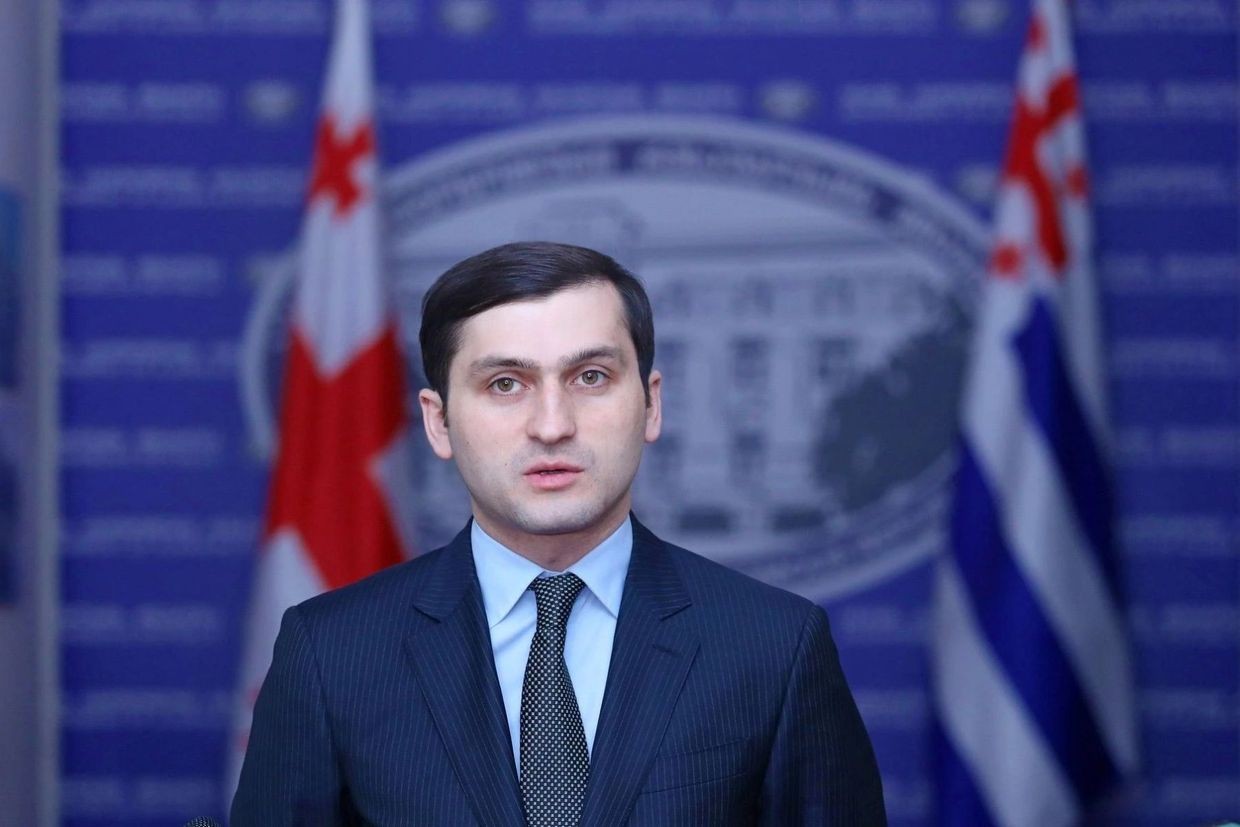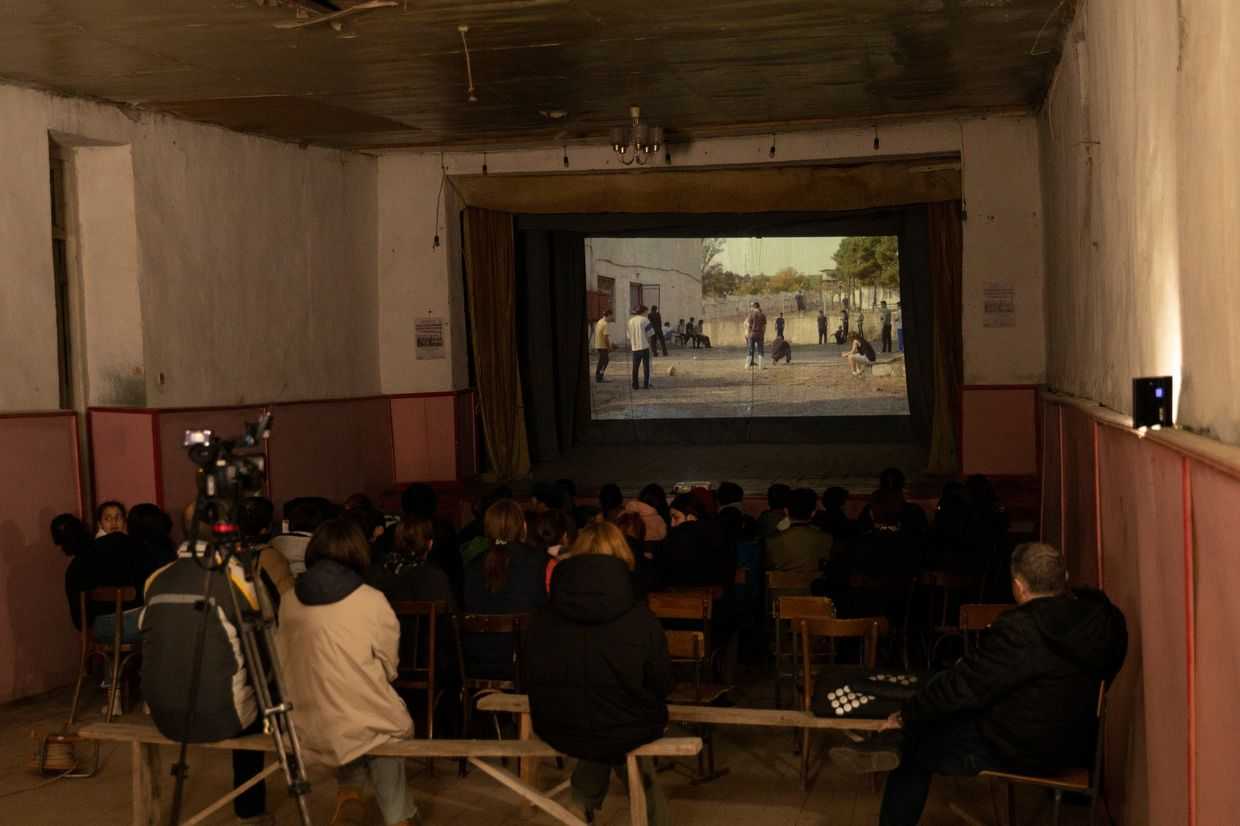
The former head of Georgia’s Autonomous Republic of Adjara, Tornike Rizhvadze, has been hospitalised with a gunshot wound to the chest in what pro-government media have suggested was a suicide attempt.
On Monday morning, Georgia’s Interior Ministry said that Rizhvadze had been admitted with a gunshot wound to a local hospital in the town of Sagarejo, in the eastern Kakheti Region, and has been given emergency medical care.
He was later transferred to the First University Clinic in Tbilisi. The clinic’s director, Levan Ratiani, told the media that the patient was admitted there at 06:30 in a ‘fairly serious’ condition, adding to previous reports that he had lung damage. In comments given at midday, Ratiani said there were signs of ‘positive dynamics’, but that Rizhvadze was still on life support.
Several pro-government media outlets have asserted that Rizhvadze left a suicide note in which he attributed his alleged suicide attempt to corruption charges against him and appealed to the ruling party to protect his family.
However, there has been widespread scepticism of this version of events from government critics.
Giorgi Mshvenieradze, a lawyer and chair of the Democratic Defenders organisation, said he suspected coverage in pro-government media was a pre-emptive attempt to dispel any public doubts.
‘I think it’s obvious that Tornike Rizhvadze’s “suicide attempt” would have been entirely perceived by the public as the fault of Ivanishvili and Kobakhidze. “Ivanishvili had him killed” — that would have been the main story. That is precisely why the propaganda media was mobilised since the morning…’ Mshvenieradze wrote on Facebook.
The incident reportedly took place at a house belonging to the mother of the director of Georgia’s Maritime Transport Agency, Aleksi Akhvlediani. Opposition-leaning channel TV Pirveli reported that Rizhvadze had been staying there with Akhvlediani for several days.
Police have launched an investigation into the incident including on charges of negligent storage of a firearm, later confirming to local media that Akhvlediani had been detained on that charge.
A ‘suicide letter’?
Shortly after confirmation of Rizhvadze’s hospitalisation, pro-government media outlets reported on a letter that, according to them, Rizhvadze had written before his suicide attempt.
Rustavi 2 claimed that the note was ‘discovered by medical staff’ in the injured Rizhvadze’s clothing, while its affiliated outlet, Prime Time, said it had ‘exclusively obtained’ the contents of the note. Later, Imedi said it had also managed to obtain the entire note.
According to their claims, in the note Rizhvadze linked his decision to the fact that he was being accused of corruption and protecting drug dealers, things he and his father had actually ‘fought against all their life’.
‘My friends, colleagues, family members — all acted on my orders and instructions. They are all innocent. I take responsibility with my own life’, the note purportedly stated.
The same reports said that Rizhvadze also gave some wishes to his family members and expressed hope that the Georgian Dream founder Bidzina Ivanishvili and Prime Minister Irakli Kobakhidze would protect his family.
The note also purportedly said that ‘Aleko [Akhvlediani] had nothing to do with it; I quietly took [the gun]’ and included a request: ‘Don’t [perform an autopsy on] me’.
Reports by pro-government media soon prompted questions, including about the manner in which they obtained the note, as they described it.
The independent online outlet Batumelebi released a comment from Lali Turdzeladze, the clinical director of the First University Clinic, in which she denied that her staff had handed over any note to the media.
The Sagarejo clinic where Rizhvadze was initially hospitalised has not yet made any comments regarding the alleged note.
Questions about the veracity of the note were also raised by Georgian Dream MP Tengiz Sharmanashvili. Speaking to journalists, he stated that first and foremost, the note needs to be examined.
‘Has it been established that this note was really written by him? How was this determined? Was an expert examination conducted? It doesn’t work like that’, he said, adding that if ‘the expert examination confirms that it was indeed his handwriting, the investigation will evaluate this and give the appropriate legal qualification’.
OC Media could not independently corroborate the veracity of the letter.
Parliamentary Speaker Shalva Papuashvili also commented on the incident during a Monday press conference, noting that this was a ‘severe case’ and wishing Rizhvadze a recovery.
One journalist asked Papuashvili whether the Interior Ministry had planned to arrest Rizhvadze.
‘I don’t know where you’re getting these versions from. Everything about this case has been said publicly. The investigation is ongoing, and it will clarify all the details’, he replied.
According to local media, former Prime Minister and former Georgian Dream chairman Irakli Gharibashvili visited Rizhvadze at the Tbilisi clinic, but left without comment.
A government reshuffle
Rizhvadze resigned from his post as chair of the government of Adjara after seven years of service on 4 April — three weeks before Gharibashvili announced his own departure from politics.
He left the position via a Facebook post without specifying the reasons for his decision or what he would do next. The former official only noted that he had worked in the position for seven years and that ‘It is time for something new’.
At the time, Rizhvadze also thanked Ivanishvili ‘for the opportunity to serve my [region]’, as well as Kobakhidze and President Mikheil Kavelashvili.
Rizhvadze was replaced by Sulkhan Tamazashvili, the Director of the Tbilisi Police Department, who has been sanctioned by the UK for overseeing violence against protesters.
The government has undertaken numerous personnel changes in recent months. Interior Minister Vakhtang Gomelauri, Infrastructure Minister Irakli Karseladze, Economy Minister Levan Davitashvili and Education Minister Giorgi Tsuladze have all stepped down from their positions.
There were also changes within police personnel, with US-sanctioned Georgian riot police chief Zviad Kharazishvili’s resignation was reported on 9 June. The Interior Ministry has also announced the reappointment of 11 police officials to different roles throughout the country.











